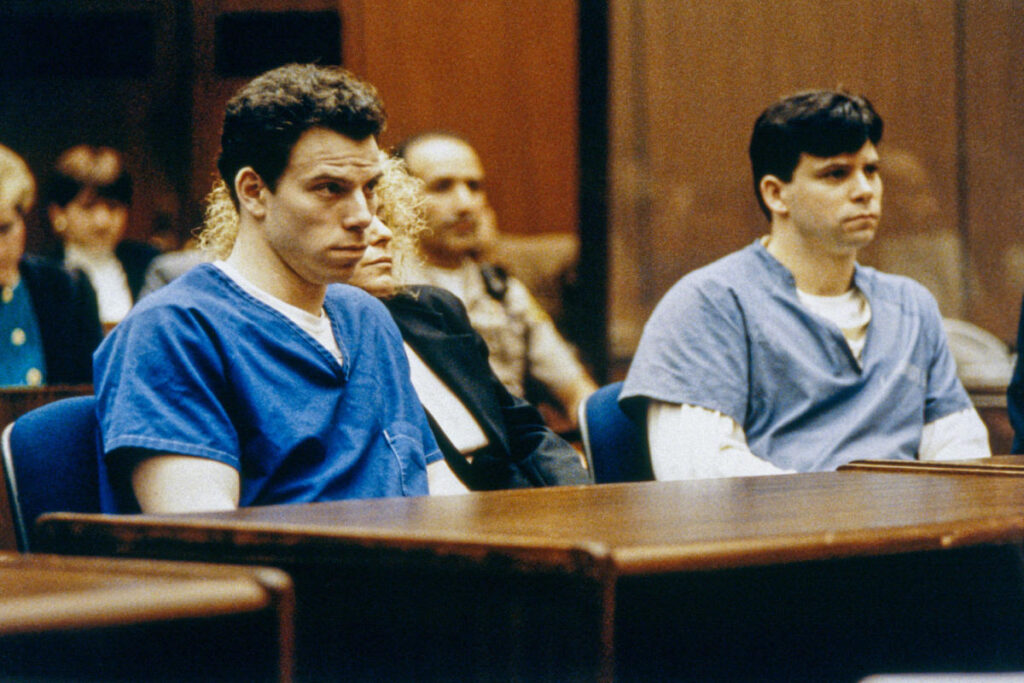Prosecutors in Los Angeles County are moving to request resentencing for Erik and Lyle Menendez, who were convicted of murdering their parents in 1989. The announcement was made during a news conference by L.A. District Attorney George Gascón, who stated that he will recommend a new sentence of life in prison with the possibility of parole. Since the brothers were under 26 at the time of the crime, this new sentence could eventually grant them immediate eligibility for parole. Gascón expressed that the brothers had experienced significant dysfunction within their family, including allegations of sexual abuse, but he also emphasized their good behavior while incarcerated and the lengthy time they have already served—over 30 years.
Erik and Lyle Menendez were convicted in 1996 for the shooting deaths of their parents, Jose and Kitty Menendez, in their Beverly Hills home. The brothers admitted to the killings but argued that they acted in self-defense after enduring years of sexual abuse from their father and neglect from their mother. Their initial trial ended in a mistrial, leading to a second trial where much of the evidence they presented concerning the alleged abuse was disqualified. This second trial saw the prosecution accuse the brothers of fabricating their claims about abuse, ultimately resulting in a jury finding them guilty of first-degree murder and sentencing them to life without parole.
As the Menendez brothers have maintained their innocence and pursued avenues to vacate their convictions, they recently gained renewed public interest, particularly following a Netflix series that revisited their case. This heightened attention has contributed to their potential chance for resentencing. In previous attempts to seek justice, their legal team submitted new evidence regarding the abuse allegations, but it was the current interest in their story that seems to have influenced the recent developments in their case. Nonetheless, Erik Menendez has publicly criticized how the Netflix series portrayed certain aspects of their lives, hinting at complexities in their narrative that may not have been fully captured.
On October 6, 2023, Gascón announced that he would be reviewing the evidence brought forth by the brothers’ attorneys, acknowledging the importance of their circumstances within the larger context of abuse. Their case touches on subjects of youthful mistakes, potential redemption, and the necessity of addressing deep-rooted trauma. Karen VanderMolen, the niece of Kitty Menendez, articulated support for Gascón’s decision during the news conference, stating that recognizing the abuse the Menendez brothers endured is an important step in the process. This sentiment underscores the varying perspectives surrounding the case, reflecting both empathy for the brothers and consideration for the memories of their deceased parents.
A court will ultimately have the power to decide whether to grant resentencing, following Gascón’s recommendation. However, a final determination will also depend on the approval of a parole board. The Menendez brothers’ long-standing legal battle illuminates broader conversations regarding justice, mental health, and the complexities of family dynamics. Advocates for their resentencing see the potential for promoting healing and understanding surrounding issues of juvenile crime, particularly considering the traumatic backgrounds many young offenders may have.
As Gascón prepares to present his case, the implications of his choice extend beyond the Menendez brothers, touching on societal attitudes toward crime, rehabilitation, and the recognition of past traumas. His actions may redefine how the legal system treats individuals who committed crimes during youth, especially those who have demonstrated good behavior while incarcerated. The outcome of this decision not only holds the possibility of freedom for Erik and Lyle Menendez but also reflects changing perspectives on justice and the need for compassion in cases involving survivors of abuse. As the situation continues to evolve, both the Menendez brothers and the public remain deeply engaged, watching how this critical intersection of law and personal history unfolds.

